Introduction.
The Boiler Upgrade Scheme (BUS) supports the decarbonisation of heat in buildings. It provides upfront capital grants to support the installation of heat pumps and biomass boilers in homes and non-domestic buildings in England and Wales.
Acting on behalf of property owners, installers can apply for:
- £5000 off the cost and installation of an air source heat pump
- £5000 off the cost and installation of a biomass boiler
- £6000 off the cost and installation of a ground source heat pump, including water source heat pumps
*Please note the grant will only cover biomass boilers in rural locations, in properties that are not connected to the gas grid, and with an emissions certificate showing that polluting emissions are kept to a minimum. Biomass boilers in self-build properties are not eligible under the scheme.
Any leftover costs for installation will then be paid by the homeowner. The government has set aside £450 million for this scheme and will operate it on a first-come, first-served basis for those who meet the eligibility criteria.
Both modern air source heat pumps and gas boilers can be very efficient appliances in terms of using their respective fuels to generate heat, but even though they can both provide heating and hot water for a property, there are several differences between them. To be able to make an informed choice, you need to understand each option thoroughly. Whilst a direct gas boiler replacement is often the cheaper option, installing an air source heat pump can help to reduce your carbon emissions, as well as cut your energy bills, massively. In this article, we’ll weigh up both options, comparing the two rigorously and hopefully helping you to make the right decision for your property.
Who Can Apply To The Scheme?
It’s open to homeowners, as well as owners of small business properties, in England and Wales only. The flat-grant rate is designed to aid with the costs of fitting heat pumps to provide full space heating and hot water, replacing fossil fuel systems like gas, oil, or direct electric. The heat pumps needs to have a minimum SCOP of 2.8.
To apply, you’ll need to:
- Own your property (this can be a home or a small business property).
- Have a property with an installation capacity up to 45kWth (this covers most homes).
- Have a valid Energy Performance Certificate (EPC), provided in the last 10 years. Your EPC must not have any outstanding recommendations for loft or cavity wall insulation.
If a home has an EPC or insulation exemption, for instance, if it is a listed building, it might still be eligible. You will still be able to apply if you currently have loft or cavity wall insulation, but you need to have a commitment to improving this in order to qualify for the boiler upgrade scheme.
Custom and self-build homes will qualify for the scheme, as eco-friendly building regulations will need to have been complied with. This means that custom and self-builders will not have to provide an EPC as evidence for insulation eligibility.
Who Is Not Eligible For The Scheme?
The scheme is not available in Northern Ireland and Scotland. There are separate funding schemes running such as Home Energy Scotland.
Anyone replacing an existing low-carbon heating system will not qualify. Also, the scheme is not open to anyone in social housing and new-build homes.
When Did The Scheme Open?
The scheme runs from April 2022 to April 2028. Low carbon heating systems that are commissioned (installed and fully checked by your installer) on or after 1 April 2022 will be eligible for funding under the scheme.
However, applications and payments can only be made from 23 May 2022 at the earliest.
The new heating system must also be able to meet the full space heating and hot water requirements of your property and meet certain technical standards, such as minimum efficiency requirements. Your installer can advise you on these.
On average about 90,000 homes are predicted to benefit from the boiler upgrade scheme over the next three years. It was previously known as the Clean Heat Grant, taking the place of the Renewable Heat Incentive (RHI) which finished on 31st March 2022.
What Heating Systems Will Be Covered By The Scheme?
The below types of heat pumps (high and low-temperature units) will be covered by the Boiler Upgrade Scheme.
- Ground source heat pumps
- Air source heat pumps
- Water source heat pumps
Qualifying households need to have a heat pump capacity lower than or equal to 45KW, restricting the support to smaller installations. Shared ground loop arrays are permitted, subject to a “total system capacity” limit of 45KW.
Air source heat pump grants available under the BUS scheme can be as much as £5,000, whereas ground source heat pump grants up to £6,000 are available.
Biomass installations
The government’s aim to drive down the cost of clean heat also makes it clear that in a few situations where homes are not deemed suitable for heat pumps, the grant could cover biomass installations. However, this is only when it is completely necessary and only in rural areas, not urban populations. Both the government and the Committee on Climate Change (CCC) state that heat pumps offer the most potential for heat decarbonisation.
What Systems Won't Be Covered By The Scheme?
There will be help available to installations offering space and water heating in buildings, but the scheme does not include:
- Process heating
- Biogas combustion
- Hybrid (bivalent) heat pump systems
- Heat networks with a “total system capacity” of more than 45KW
- Solar thermal
However, solar thermal systems can be fitted as part of a heat pump system funded by the scheme, providing the heating system can meet the complete space and water heating requirements.
How Can I Access The Scheme?
The Boiler Upgrade Scheme is an installer-led scheme. This means that the installer will apply for the grant on your behalf. The value of the grant will be taken off the final price you pay.
This information leaflet has been designed to act as a trusted source of information that installers can refer to with their customers, providing an overview of the scheme and links to key websites.
What Are The Key Details?
Application Process:
Customers that are interested in applying for the boiler upgrade scheme should register their interest with MCS-certified heat pump installers through Ofgem, they will then agree on a quote for the fitting of the new system and apply for the grant on their behalf. Ofgem provides grant vouchers based on availability and if all aspects of the criteria are met. Any outstanding recommendations for loft or cavity wall insulation have to be finished before the voucher for funding can be redeemed. service post installation. Contact our team, read our testimonials, and view accreditations if you need any more proof as to why Heat From Air is the correct choice for you. After all, Your Green Future Starts Here!
Voucher Redemption:
The voucher for funding through the boiler upgrade scheme will be valid for six months, during which time the installation must be completed, and the heat pump commissioned by the verified installer. If the voucher expires, the application can be started again, but allocations for vouchers are made on a first-come, first-served basis, meaning you could miss out!
The benefit of the grant is that it is designed to offset the cost of installation. Redeeming the voucher will be done by the certified fitter, who will confirm proof of the installation and process the paperwork when finished.
To check your eligibility for a heat pump grant, get in touch and our team will check if you qualify for funding.
Boiler Upgrade scheme.
In October 2021 the UK government announced a Boiler Upgrade Scheme to help householders and small commercial owners changing from a gas boiler to a heat pump (air source or ground source).
The £450 million scheme will run until April 2028 and offers a payment of £5,000 per property towards installing a new heat pump. To find out all about this scheme, read our article here!
Get more Information on the Boiler Upgrade scheme.
Enter your email address below for more information.
Article Content
Recent Articles
Newsletter Sign Up
Keep up to date with latest news and industry insights.





